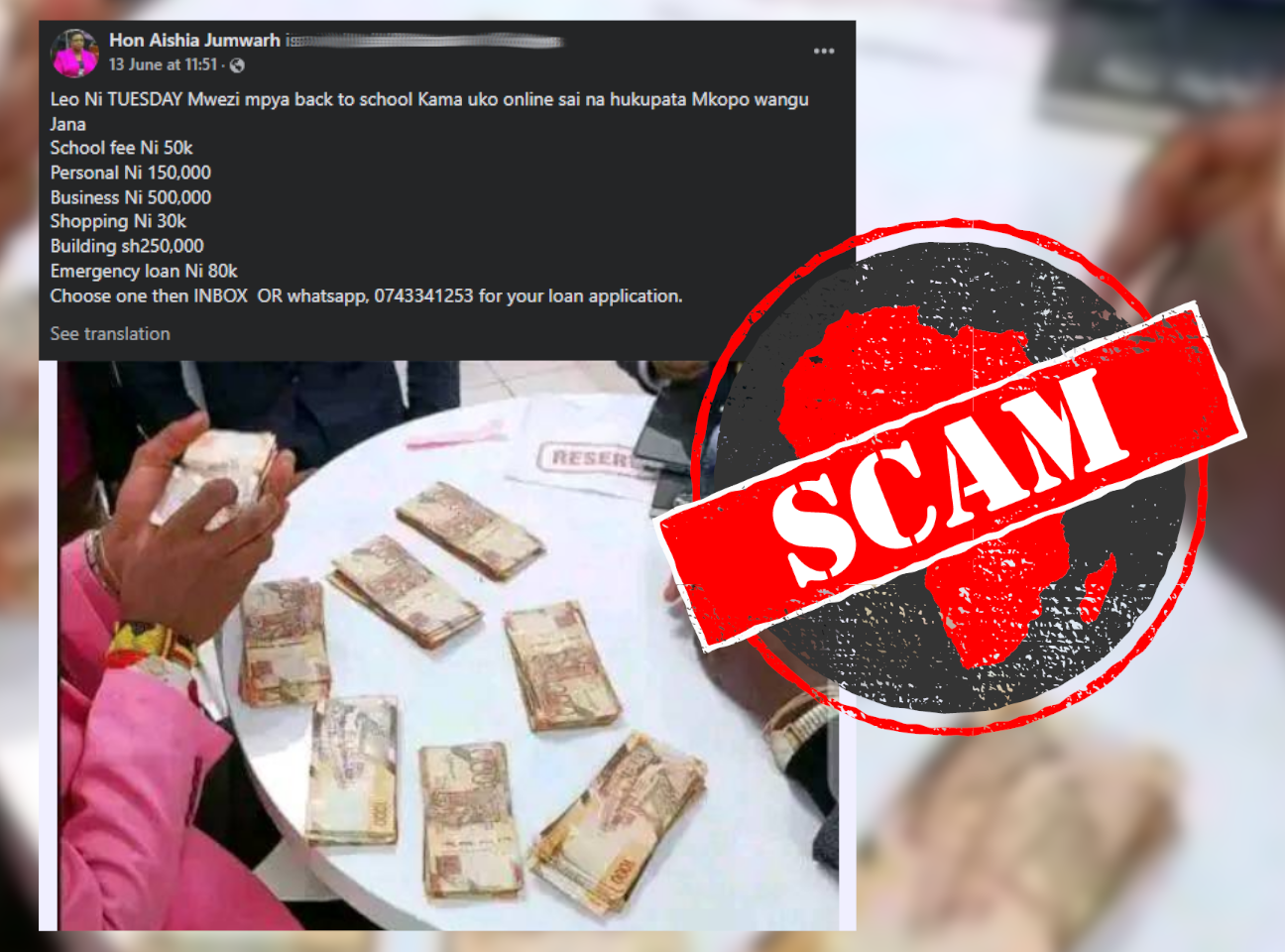IN SHORT: A cabinet secretary offering loans to Kenyans would entice many to sign up. This account claiming to belong to her hopes people will fall for its scams.
The Facebook account Hon Aishia Jumwarh has announced loan offers available to Kenyans.
The account’s profile picture is of Kenyan politician, Aisha Jumwa. She is the cabinet secretary for public service, gender and affirmative action.
One of its posts, dated 9 June 2023, reads: “Leo Ni TUESDAY Mwezi mpya back to school Kama uko online sai na hukupata Mkopo wangu Jana School fee Ni 50k Personal Ni 150,000 Business Ni 500,000 Shopping Ni 30k Building sh250,000 Emergency loan Ni 80k Choose one then INBOX OR whatsapp, 0743341253 for your loan application.”
The mix of Kiswahili and English roughly translates to: “Today is Tuesday new month back to school If you are online right now and you didn’t get my loan yesterday School fee is 50k personal is 150,000 Business is 500,000 Shopping is 30k Building sh250,000 Emergency loan is 80k choose one then INBOX OR whatsapp, 0743341253 for your loan application.”
A picture of wads of money is included in the post.
The account has posted the same offer here, here, here and here.
But does this Facebook account really belong to Jumwa? We checked.

Fake Facebook account
The account claiming to be Jumwa’s spells her name wrong. Its timeline shows that the first post was published on 28 May 2023.
All posts since then have been promising money to Kenyans. This activity is uncharacteristic of a cabinet secretary’s social media platform.
Jumwa’s official Facebook page is verified and has over 263,000 followers. It features posts showing her daily engagements and whereabouts.
Her page also makes no mention of any loan offers or promotions and publishes well-written messages without grammatical errors.
Republish our content for free
For publishers: what to do if your post is rated false
A fact-checker has rated your Facebook or Instagram post as “false”, “altered”, “partly false” or “missing context”. This could have serious consequences. What do you do?
Click on our guide for the steps you should follow.
Publishers guideAfrica Check teams up with Facebook
Africa Check is a partner in Meta's third-party fact-checking programme to help stop the spread of false information on social media.
The content we rate as “false” will be downgraded on Facebook and Instagram. This means fewer people will see it.
You can also help identify false information on Facebook. This guide explains how.


Add new comment